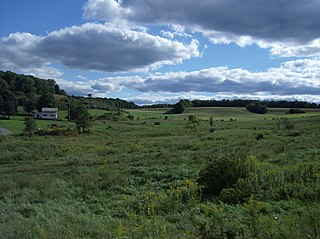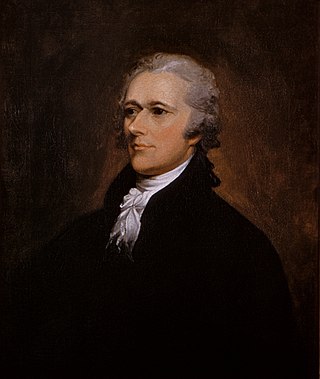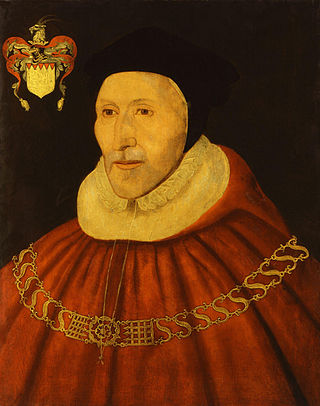
Common law is the body of law created by judges and similar quasi-judicial tribunals by virtue of being stated in written opinions.
A tort is a civil wrong that causes a claimant to suffer loss or harm, resulting in legal liability for the person who commits the tortious act. Tort law can be contrasted with criminal law, which deals with criminal wrongs that are punishable by the state. While criminal law aims to punish individuals who commit crimes, tort law aims to compensate individuals who suffer harm as a result of the actions of others. Some wrongful acts, such as assault and battery, can result in both a civil lawsuit and a criminal prosecution in countries where the civil and criminal legal systems are separate. Tort law may also be contrasted with contract law, which provides civil remedies after breach of a duty that arises from a contract. Obligations in both tort and criminal law are more fundamental and are imposed regardless of whether the parties have a contract.

English law is the common law legal system of England and Wales, comprising mainly criminal law and civil law, each branch having its own courts and procedures.
In law, certiorari is a court process to seek judicial review of a decision of a lower court or government agency. Certiorari comes from the name of an English prerogative writ, issued by a superior court to direct that the record of the lower court be sent to the superior court for review. The term is Latin for "to be made more certain", and comes from the opening line of such writs, which traditionally began with the Latin words "Certiorari volumus...".
Case law, also used interchangeably with common law, is a law that is based on precedents, that is the judicial decisions from previous cases, rather than law based on constitutions, statutes, or regulations. Case law uses the detailed facts of a legal case that have been resolved by courts or similar tribunals. These past decisions are called "case law", or precedent. Stare decisis—a Latin phrase meaning "let the decision stand"—is the principle by which judges are bound to such past decisions, drawing on established judicial authority to formulate their positions.

Sir William Blackstone was an English jurist, justice and Tory politician most noted for his Commentaries on the Laws of England, which became the best-known description of the doctrines of the English common law. Born into a middle-class family in London, Blackstone was educated at Charterhouse School before matriculating at Pembroke College, Oxford, in 1738. After switching to and completing a Bachelor of Civil Law degree, he was made a fellow of All Souls College, Oxford, on 2 November 1743, admitted to Middle Temple, and called to the Bar there in 1746. Following a slow start to his career as a barrister, Blackstone became heavily involved in university administration, becoming accountant, treasurer and bursar on 28 November 1746 and Senior Bursar in 1750. Blackstone is considered responsible for completing the Codrington Library and Warton Building, and simplifying the complex accounting system used by the college. On 3 July 1753 he formally gave up his practice as a barrister and instead embarked on a series of lectures on English law, the first of their kind. These were massively successful, earning him a total of £453, and led to the publication of An Analysis of the Laws of England in 1756, which repeatedly sold out and was used to preface his later works.
A legal fiction is a construct used in the law where a thing is taken to be true, which is not in fact true, in order to achieve an outcome. Legal fictions can by employed by the courts or found in legislation.

Gleaning is the act of collecting leftover crops from farmers' fields after they have been commercially harvested or on fields where it is not economically profitable to harvest. It is a practice described in the Hebrew Bible that became a legally enforced entitlement of the poor in a number of Christian kingdoms. Modern day "dumpster diving", when done for food or culinary ingredients, is seen as a similar form of food recovery. Gleaning is also still used to provide nutritious harvested foods for those in need. In the United States, it is used due to the need for a national network to aid food recovery organizations. This is called the National Gleaning Project, which was started by the Center for Agriculture and Food Systems at Vermont Law and Graduate School to aid those less fortunate much like the old Christian Kingdoms.
Replevin or claim and delivery is a legal remedy which enables a person to recover personal property taken wrongfully or unlawfully, and to obtain compensation for resulting losses.

The open-fields doctrine, in the U.S. law of criminal procedure, is the legal doctrine that a "warrantless search of the area outside a property owner's curtilage" does not violate the Fourth Amendment to the United States Constitution. However, "unless there is some other legal basis for the search," such a search "must exclude the home and any adjoining land that is within an enclosure or otherwise protected from public scrutiny."

Federalist No. 78 is an essay by Alexander Hamilton, the seventy-eighth of The Federalist Papers. Like all of The Federalist papers, it was published under the pseudonym Publius.

Entick v Carrington [1765] EWHC KB J98 is a leading case in English law and UK constitutional law establishing the civil liberties of individuals and limiting the scope of executive power. The case has also been influential in other common law jurisdictions and was an important motivation for the Fourth Amendment to the United States Constitution. It is famous for the dictum of Lord Camden: "If it is law, it will be found in our books."

Marxist criminology is one of the schools of criminology. It parallels the work of the structural functionalism school which focuses on what produces stability and continuity in society but, unlike the functionalists, it adopts a predefined political philosophy. As in conflict criminology, it focuses on why things change, identifying the disruptive forces in industrialized societies, and describing how society is divided by power, wealth, prestige, and the perceptions of the world. "The shape and character of the legal system in complex societies can be understood as deriving from the conflicts inherent in the structure of these societies which are stratified economically and politically". It is concerned with the causal relationships between society and crime, i.e. to establish a critical understanding of how the immediate and structural social environment gives rise to crime and criminogenic conditions.
Slavery at common law in the British Empire developed slowly over centuries, and was characterised by inconsistent decisions and varying rationales for the treatment of slavery, the slave trade, and the rights of slaves and slave owners. Unlike in its colonies, within the home islands of Britain, until 1807, except for statutes facilitating and taxing the international slave trade, there was virtually no legislative intervention in relation to slaves as property, and accordingly the common law had something of a "free hand" to develop, untrammelled by the "paralysing hand of the Parliamentary draftsmen". Two attempts to pass a slave code via Parliament itself both failed, one in the 1660s and the other in 1674.
Sources of law are the origins of laws, the binding rules that enable any state to govern its territory. The terminology was already used in Rome by Cicero as a metaphor referring to the "fountain" of law. Technically, anything that can create, change, or cancel any right or law is considered a source of law.

Sir James Dyer was a judge and Speaker of the House of Commons during the reign of Edward VI of England.

Timworth is a village and civil parish 65 mi (105 km) north east of London and 26 mi (42 km) east of Cambridge in the West Suffolk district of Suffolk in eastern England. Located around two miles north of Bury St Edmunds, its 2005 population was 50. At the 2011 Census the appropriate Postal Code showed the population as being included in Ampton.

Slade's Case was a case in English contract law that ran from 1596 to 1602. Under the medieval common law, claims seeking the repayment of a debt or other matters could only be pursued through a writ of debt in the Court of Common Pleas, a problematic and archaic process. By 1558 the lawyers had succeeded in creating another method, enforced by the Court of King's Bench, through the action of assumpsit, which was technically for deceit. The legal fiction used was that by failing to pay after promising to do so, a defendant had committed deceit, and was liable to the plaintiff. The conservative Common Pleas, through the appellate court the Court of Exchequer Chamber, began to overrule decisions made by the King's Bench on assumpsit, causing friction between the courts.
Somerset v Stewart (1772) 98 ER 499 is a judgment of the English Court of King's Bench in 1772, relating to the right of an enslaved person on English soil not to be forcibly removed from the country and sent to Jamaica for sale. According to one reported version of the case, Lord Mansfield decided that:
The state of slavery is of such a nature that it is incapable of being introduced on any reasons, moral or political, but only by positive law, which preserves its force long after the reasons, occasions, and time itself from whence it was created, is erased from memory. It is so odious, that nothing can be suffered to support it, but positive law. Whatever inconveniences, therefore, may follow from the decision, I cannot say this case is allowed or approved by the law of England; and therefore the black must be discharged.

Worlledge v Manning (1786) East, 26 Geo. 3 CB; 126 ER 34 is a landmark judgment in English law by the House of Lords and was formative to the modern legal understanding of private property rights.












